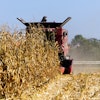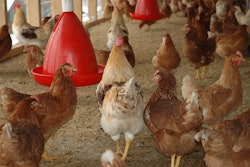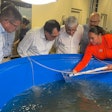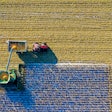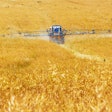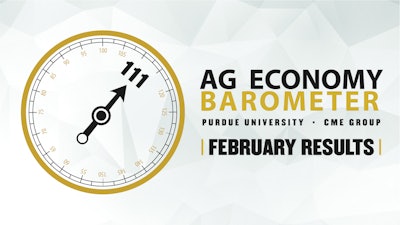
According to the Purdue University-CME Group Ag Economy Barometer, there has been a small yet notable climb in farmer sentiment in February, with the barometer recording a value of 111, which is a five-point increase from the previous month. However, despite this uplift, financial concerns remain a significant factor for farmers.
The slight climb in the barometer is credited to producers expressing a marginally higher level of optimism about the future, with the Future Expectations Index rising seven points to a value of 115. The Current Conditions Index, on the other hand, remained unchanged from the previous month.
Interestingly, while farmers' outlook for the future showed improvement, their expectations for financial performance did not follow suit. The Farm Financial Performance Index for February marked a reading of 85, one point down from January and 13 points lower than its recent high in December.
The impact of weak crop prices continues to be a significant factor for financial expectations. Mid-February cash prices for corn and soybeans in the Eastern Corn Belt were 7% and 8% lower, respectively, compared to the prices two months prior when the December survey was conducted.
When surveyed about the primary concerns for their farming operation in the upcoming year, respondents continued to highlight "high input costs" (34% of respondents) and "lower crop/livestock prices" (28% of respondents) as the top two concerns.
The Farm Capital Investment Index remained weak in February, dropping one point to a reading of 34, which is nine points lower than the same period the previous year. The farmers who believed that the current period is not a good time for large investments cited high production costs and weak output prices as the primary reasons behind their decision.
Farmers' short-term expectations for farmland values remained the same as January's, with the Short-Term Farmland Values Expectations Index marking a consistent reading of 115 for both months. However, when compared to the previous year, the index was down by four points, and it was also 30 points lower than two years ago.
Each year in February, the barometer survey asks respondents about their plans for their farm operation, focusing on growth plans for the upcoming 5-year period. This year, nearly four out of ten (38%) producers said they have "no plans to grow," and an additional 14% of respondents said they plan to "exit or retire from farming". On the other hand, just over three out of ten respondents in this month's barometer survey said they expect their farm's annual growth rate to exceed 5%.
Interest in leasing farmland for solar energy development continues to be strong. The February survey queried producers regarding whether they have discussed the installation of a solar energy project with a company in the last six months. If a respondent indicated they had been involved in discussing a possible solar lease, a follow-up question asked, following the construction of the solar project, what annual payment rate per acre was offered. Ten percent of respondents this month said they had discussed a solar leasing project with a company in the last 6 months. Payment rates offered varied widely, but it was notable that over half of respondents said they were offered a lease rate of $1,000 per acre or more.

